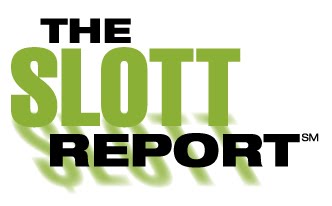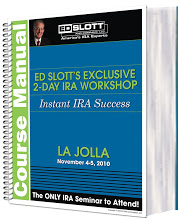This week's Slott Report Mailbag discusses some complex, timely issues involving a bank error (whose fault is it?) and Roth recharacterizations. As always, we stress the importance of working with a competent, educated financial advisor to keep your retirement nest egg safe and secure.
1.
I converted $100K from a traditional IRA to a Roth IRA in 2008. I forgot to claim this $100K as income. The IRS has rightly advised me of this and has requested the taxes (and interest and penalty due). So far, so good.
Unfortunately in early 2009, I realized that due to an end-of-year bonus, I was ineligible to convert. So I recharacterized for $95K (the market had gone down). Must I file a 1040X for 2008 to claim less income for 2008? I assume that income is lower by $95K.
Thanks in advance.
Answer:
I assume you recharacterized your Roth IRA conversion by 10/15/09 for the 2008 conversion. The conversion should have been reported on your 2008 income tax return. When you recharacterized you were undoing the $100,000 conversion. Your return for 2008 should have shown the income from the conversion and it should have included a note telling IRS the date and amount of the conversion and the date and amount of the recharacterization. These instructions can be found in the instructions for Form 8606.
2.
I removed money from my IRA, attempted to put it back within 60 days, but my check was returned for insufficient funds. Apparently the bank the check was written from placed a hold on the funds and ended up not honoring the check when the IRA custodian tried to cash it.
The problem was later corrected and the bank claimed the funds were available the whole time and that some type of error occurred with their hold on the funds. Either way, the 60 days passed before the funds officially made it into the IRA. I only wrote one check, which was later resubmitted and finally honored (72 days after the initial distribution).
Now the funds are in the IRA but will the IRS likely require the IRA rollover to be undone and the funds taxed and penalized? Or will the IRS likely be reasonable and understand that an error occurred with the bank’s hold on her rollover funds and allow all to remain in the IRA?
Best regards,
Dan Simonds
Answer:
There is an automatic waiver for the 60 day rule if the funds are delivered to a financial institution within the 60 day period, the taxpayer followed all the procedures for a rollover and the failure to accomplish the rollover was entirely the fault of the financial institution. The rollover must be completed in one year from the date the funds were received and the rollover must have been valid if it had been completed within the 60 days. Your set of circumstances would appear to satisfy these requirements. I would suggest you document this transaction by asking the bank for a letter admitting their error and keep a detailed record of this entire transaction in your file. The money is currently in an IRA so you should not have to do anything at this point other than keeping a record of what transpired. We always recommend that a trustee to trustee transfer be done and not have a check issued to the account owner. This will avoid the meeting of the 60 day rule.
3.
I am 60 years old and I am ready to start moving some of my finances around, from forever taxed to never taxed. I am torn between purchasing a whole life insurance policy (value of $500,000) and converting my complete rollover IRA to a Roth. The cost of each is roughly the same. What would your recommendation be? My goal is to generate wealth for my children that will be transferred to them when their mother and I are deceased.
Answer:
As you know we like life insurance to protect asset value, the leverage it provides, and the fact that done correctly the death benefit will be paid on tax free basis to your estate. The Roth IRA has many advantages as well. It is difficult to pick one over the other in your case. There are many other factors to consider. I would suggest you contact a competent advisor for further analysis.
By IRA Technical Consultant Marvin Rotenberg and Jared Trexler
------------------------------------------------------------------------------
Comment, Question, Discussion Topic on your mind? Click on the Blue Comment Link below and leave your thoughts then check back to see what other consumers and advisors think.
*Copyright 2010 Ed Slott and Company, LLC
Friday, October 1, 2010
Bank Errors, 60-Day Rule Highlight Mailbag
Posted by
Ed Slott and Company, LLC
at
9:07 AM

 Labels:
Inherited IRAs,
IRAs,
Life Insurance,
marvin rotenberg,
Retirement,
Roth IRAs
Labels:
Inherited IRAs,
IRAs,
Life Insurance,
marvin rotenberg,
Retirement,
Roth IRAs
Subscribe to:
Post Comments (Atom)














0 comments:
Post a Comment